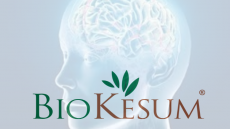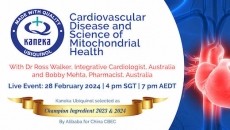Science shorts: Latest findings on xanthophyll for eye health, probiotics for C-sec delivered infants, Nestle’s glucose supplement

Xanthophyll intake improves eye health in healthy and diseased populations – meta-analysis
The supplementation of xanthophyll has shown to improve eye health in both healthy and diseased populations, according to a new meta-analysis conducted by researchers from the National University of Singapore.
Xanthophyll consists of lutein, zeaxanthin, and zeaxanthin’s stereoisomer, meso-zeaxanthin, which are compounds that play a role in preserving the structure and function of the retina. They also function as antioxidants and can absorb blue light.
Writing in Nutrition Reviews, the researchers highlighted that intake of xanthophyll-rich foods or supplements has shown to improve eye health, but more benefits, especially improvement in visual acuity was seen in those with eye diseases.
Rice bran supplementation makes no significant change on lipid profiles – Meta-analysis and systematic review
Rice bran supplementation does not significantly improve lipid levels, including triglycerides, total cholesterol, low-density lipoprotein cholesterol and high-density lipoprotein levels, says a new meta-analysis and systematic review.
Writing in Systematic Reviews, the researchers from Australia and Iran claimed that this was the first meta-analysis that assessed the effects of rice bran supplementation on lipid profile changes in adults.
Findings showed no significant effects of rice bran supplementation on serum levels of triglycerides, total cholesterol, low-density lipoprotein cholesterol or LDL-cholesterol, and high-density lipoprotein cholesterol or HDL-cholesterol, as compared to the control group.
C-sec and probiotics: Intake benefits microbiome development in 6–12-month-old infants - China RCT
Lactobacillus paracasei N1115 (Lp N1115) supplementation for 12 weeks improved the gut immunity and helped maintain faecal pH levels in infants born via C-section, a new RCT reveals.
The 12-week randomised, triple-blind, controlled trial was conducted on 101 healthy and caesarean-delivered infants aged six to 24 months.
Writing in Nutrients, it was found that the strain has helped with the growth of Lactobacillus in the gut, maintained intestinal pH, and improved the immune function of infants and toddlers aged six to 24 months. However, this only reached a significant level in those aged six to 12 months.
Mulberry leaf extract supplementation lowers post-breakfast glucose spike – Nestle-funded study
The supplementation of mulberry leaf extract, along with fibre, vitamin D, and chromium, has been shown to reduce post meal glucose spike, according to a study funded by Nestle Health Science on one of its products.
Thirty individuals of Asian origin with type II diabetes (T2D) from Singapore and USA were involved in this randomised, double-blind, controlled study which examined the effects of Nutren GlucoSmart versus the placebo.
Findings published in Diabetes Therapy showed that the group taking mulberry leaf extract had a lower post meal glucose spike.
Combo of astaxanthin, lutein and zeaxanthin found to improve eye-hand coordination impaired by prolonged screen time – Senju-funded RCT
The supplementation of astaxanthin, lutein and zeaxanthin could effectively improve visual functions and musculoskeletal symptoms caused by long-term visual display terminal (VDT) activity, say Japanese researchers.
Eye-hand coordination is the ability to process information received through the eyes to control, guide and direct movements of the hands.
Writing in Nutrients, the researchers said that eye-hand coordination times in the intervention group were found to be shorter than the placebo group.


















